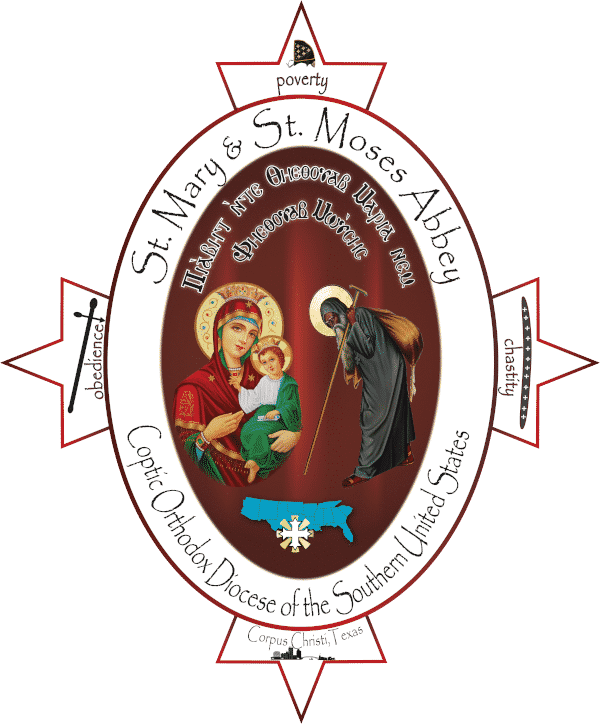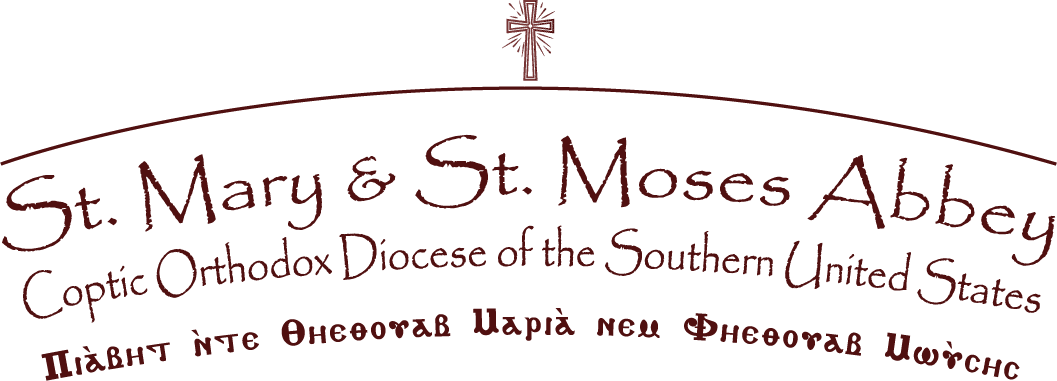Poverty reveals the power of God
The monastic way of life is one of continual learning, growing, self sacrifice and commitment to the vows of poverty, obedience, and chastity. The monastic not only believes in the Lord Jesus Christ but abandons all monetary gain, accumulated possessions, and inheritance to follow the Lord. Forsaking the need for materialism allows the monk to cooperate more fully with God to do His Will with salvation being the foremost goal of his monastic life.
“That many of us are called poor, this is not our disgrace, but our glory. For, as our mind is relaxed by luxury, so is it strengthened by frugality? Yet, who can be poor if he does not want-if he does not crave for-the possessions of others? Who can be poor if he is rich towards God? He, rather, is poor, who, although he has much, desires more.” (Mark Minucius Felix c. 200)
Poverty has many attributes. Poverty instills patience, courage, obedience, and the desire to withstand earthly temptations. For the poor, sin is less seductive, less enticing, and therefore the poor have the less distracted power to overcome evil. In the Holy New Testament Book of Hebrews we read, “Let your conduct be without covetousness, and be content with such things as you have” (13: 5).
It has also been said to be poor is to learn and gain self-control. Vices and passions of this life mostly require the foundations of money and wealth, ultimately leading toward impurity. To be impoverished, virtue develops which assists one to conquer vices and passions through the grace and power of God. Clement of Alexandria proclaimed,“Wealth, when not properly governed, is a stronghold of evil. Many, because of casting their eyes upon it, will never reach the Kingdom of Heaven. For they are sick for the things of the world, and are living proudly through luxury…Love of money is found to be the stronghold of evil, which the apostle says, ‘is the root of all evils.’ But the best riches is poverty of desires. And the true magnanimity is not to be proud of wealth, but to despise it.” (c. 195)
In the Holy Gospel of St. Luke the poor are addressed as having God’s compassion. “But when you give a feast, invite the poor, the maimed, the lame, and the blind” (14:13). Thus to share hospitality with the impoverished is similar to God welcoming them to His banqueting table in the Kingdom of Heaven. This coincides with the goal of the ascetic way of life which leads to salvation.
Further, all the apostles, every single one, were in agreement as to caring for the poor. “They desired only that we should remember the poor, the very thing which I also was eager to do” (Galatians 2: 10). It is paramount to remember that the apostles forsook all to follow the Lord Jesus Christ. In doing so, they continued to remember the poor, even though they were not in possession of abundant wealth themselves.
The monetary state of the apostles and their remembering the poor might reflect what Tertullian (c.200) centuries later would insightfully say, “Let us not interpret ‘covetousness’ as consisting merely in the lust of what is another’s. For even what seems ours is another’s. Nothing is ours, since all things are God’s, to whom we ourselves belong.
Ancient documents warn of the ill effects of riches. The Didache (c.80-140) states, “My child, do not be a money-lover, nor vainglorious. For out of these, thefts are born.” Does this not confirm what St. Paul wrote to his disciple St. Timothy, “Having food and clothing, with these we shall be content. But those who desire to be rich fall into temptation and snare…For the love of money are a root of all kinds of evil, for which some have strayed from the faith in their greediness” (I Timothy 6:8-10)
As one knows God does not show partiality to anyone. So therefore He must not show partiality to the poor. Why then does poverty become a mandated vow that must be taken by one desiring the monastic way of life? Perhaps the answer to this question lies in the poor having witnessed the emptiness of this world (without treasures and monetary reward) are more likely to lead a life of repentance while the rich tend to prize earthly possessions and possibly hurt others to gain even more.
St. James addresses this issue by saying, “Listen, my beloved brethren, has God not chosen the poor of this world to be rich in faith and heirs of the Kingdom which He promised to those who love Him?” (2:5)
While no one is worthy of salvation in and of himself, monks attempt to be worthy through vows, such as poverty, as the example of the Lord Jesus Christ before them who was not in His own earthly right wealthy.
The devout monk realizes that the Lord will provide through the power of His Glory all the monk’s richest earthly experiences through his heart, mind, and soul. As he prays, “But those things which are good and profitable do provide for us; for it is You Who have given us the authority to tread on serpents and scorpions, and upon all the power of the enemy…” (Thanksgiving Prayer)
The monk truly believes through poverty that life will be eased and he can better fulfill the Lord’s commandments. As a matter of speaking, poverty assists in conducting thoughts. Poverty turns one’s life’s direction toward being focused and called to salvation by being guided and guarded and attaining the unity of faith, and the growing knowledge of His imperceptible and infinite glory.
Bishop Youssef
Abbot, St. Mary and St. Moses Abbey

